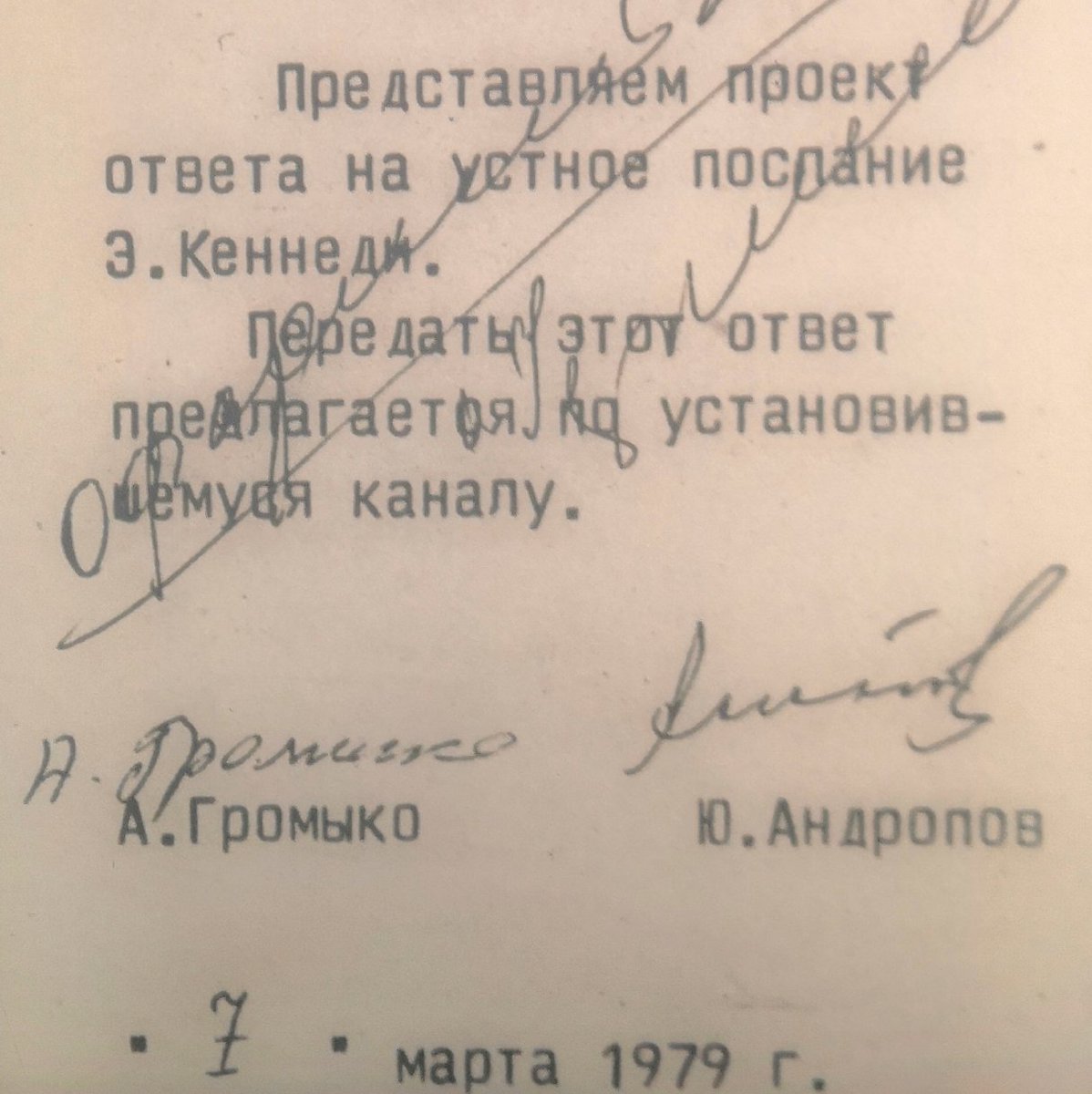I hesitated for a bit whether I should post excerpts from the following documents as they can easily be quoted out of context but I've decided to do it anyway. For a start, they are already declassified. Also, Sen. Ted Kennedy - who features in the document - is long dead.
For much of the 1970s-80s, Sen. Kennedy had his own "backchannel" to Moscow. This is hardly surprising. Bob Kennedy worked a backchannel through the GRU agent in Washington Georgi Bolshakov, something that played a role in crisis management in the Cuban Missile Crisis.
There was the Dobrynin-Kissinger backchannel. Of course, Dobrynin was the Soviet Ambassador, while Kissinger was a highly ranked official in the Nixon and Ford Administrations, so it's not the same thing. Ted Kennedy was a Democratic Senator. But an ambitious one at that.
The Soviets thought he'd be the Democratic nominee in 1976, so they tried hard to cultivate him, and of course Ted Kennedy also wanted his special relationship with Moscow to show to the US public that he could deliver detente while securing Soviet cooperation on human rights.
But I always wondered how he exchanged messages with the Soviet leaders. Turns out there was a backchannel. We see a reference to it in this memo from Gromyko and Andropov to Brezhnev, which refers to Ted Kennedy's "oral message" through the "established channel."
What was the channel used for? For discussing policy, e.g. arms control, or China. The above message from 1979, for example, contained Soviet views on these subjects. Often (as in 1981) Ted Kennedy used the channel to request audience in Moscow.
In other words, Ted Kennedy was in no sense a Soviet "asset": he was playing his own political game. It is, of course, odd that a prominent Senator would have his own KGB channel to Moscow. Think of this in today's context - that would be suicidal!
But on the other hand, he certainly was not the only one. Hell, Henry Scoop Jackson of anti-Soviet fame once invited Ambassador Dobrynin to his *house* for breakfast to try to extract an invitation to Moscow (he was turned away). One could argue that those were different times.
Backchannels assured secrecy and effective communication with the Soviet leaders - that's why they were used. Those who relied on them were not "traitors". They understood that to get things done with Moscow, you just could not go through official or public channels.
No one makes concessions in public. Too much prestige is engaged. Any lessons here for today? Maybe.

 Read on Twitter
Read on Twitter



